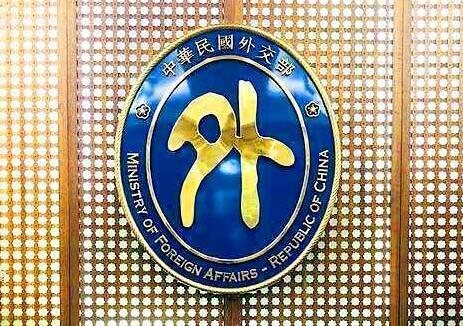Cambodia deported Taiwanese fraud suspects to China yesterday and today, the Ministry of Foreign Affairs said, expressing serious concern and urging Cambodian authorities to provide a full list of the Taiwanese suspects deported.
About 180 Taiwanese were arrested together with seven alleged Chinese coconspirators on March 31 during a round of raids on an online telecommunications fraud center in Phnom Penh.
Cambodian authorities deported nearly 190 suspects to China in three groups last night and early this morning, the ministry said today.

Photo: Lu Yi-hsuan, Taipei Times
After receiving notification of the arrests on April 1, Taiwan’s representative office in Ho Chi Minh City began negotiating with the Cambodian government, the ministry said.
The office requested that Cambodian authorities provide a complete list of names of the Taiwanese suspects and deport them to Taiwan to face legal consequences in accordance with international norms, it said.
Despite these requests, the Cambodian government has yet to provide a complete list or specific number of suspects, the ministry said.
The ministry expressed serious regret over the Cambodian government’s compliance with China, disregard for international norms and failure to respect the will of the Taiwanese involved.
The ministry has instructed Taiwan’s representative office in Ho Chi Minh City to formally convey Taiwan’s strong protest to these actions, it said.
The ministry consulted with relevant agencies including the Mainland Affairs Council, hoping to utilize the Cross-Strait Joint Crime-Fighting and Judicial Mutual Assistance Agreement (海峽兩岸共同打擊犯罪及司法互助協議) to request the suspects’ return, it said.
The ministry urged Taiwanese not to engage in illegal activities such as telecom fraud overseas to avoid breaching local laws and being imprisoned abroad.
Relevant agencies would continue working with other countries to strengthen efforts in combating transnational crime, the ministry said.

Taiwan has received more than US$70 million in royalties as of the end of last year from developing the F-16V jet as countries worldwide purchase or upgrade to this popular model, government and military officials said on Saturday. Taiwan funded the development of the F-16V jet and ended up the sole investor as other countries withdrew from the program. Now the F-16V is increasingly popular and countries must pay Taiwan a percentage in royalties when they purchase new F-16V aircraft or upgrade older F-16 models. The next five years are expected to be the peak for these royalties, with Taiwan potentially earning

STAY IN YOUR LANE: As the US and Israel attack Iran, the ministry has warned China not to overstep by including Taiwanese citizens in its evacuation orders The Ministry of Foreign Affairs (MOFA) yesterday rebuked a statement by China’s embassy in Israel that it would evacuate Taiwanese holders of Chinese travel documents from Israel amid the latter’s escalating conflict with Iran. Tensions have risen across the Middle East in the wake of US and Israeli airstrikes on Iran beginning Saturday. China subsequently issued an evacuation notice for its citizens. In a news release, the Chinese embassy in Israel said holders of “Taiwan compatriot permits (台胞證)” issued to Taiwanese nationals by Chinese authorities for travel to China — could register for evacuation to Egypt. In Taipei, the ministry yesterday said Taiwan

Taiwan is awaiting official notification from the US regarding the status of the Agreement on Reciprocal Trade (ART) after the US Supreme Court ruled US President Donald Trump's global tariffs unconstitutional. Speaking to reporters before a legislative hearing today, Premier Cho Jung-tai (卓榮泰) said that Taiwan's negotiation team remains focused on ensuring that the bilateral trade deal remains intact despite the legal challenge to Trump's tariff policy. "The US has pledged to notify its trade partners once the subsequent administrative and legal processes are finalized, and that certainly includes Taiwan," Cho said when asked about opposition parties’ doubts that the ART was

If China chose to invade Taiwan tomorrow, it would only have to sever three undersea fiber-optic cable clusters to cause a data blackout, Jason Hsu (許毓仁), a senior fellow at the Hudson Institute and former Chinese Nationalist Party (KMT) legislator, told a US security panel yesterday. In a Taiwan contingency, cable disruption would be one of the earliest preinvasion actions and the signal that escalation had begun, he said, adding that Taiwan’s current cable repair capabilities are insufficient. The US-China Economic and Security Review Commission (USCC) yesterday held a hearing on US-China Competition Under the Sea, with Hsu speaking on